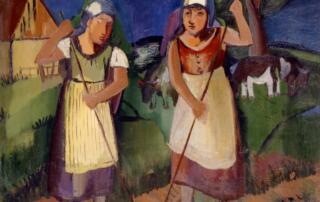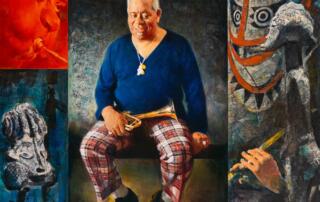„I’m always on the go…” –
The painter Franz Domscheit / Pranas Domšaitis (1880-1965)
Lecture by Jan Rüttinger, Lüneburg (Germany)
Searching, wandering, not arriving - this is how the person and art of Franz Domscheit/Pranas Domšaitis can be characterized. Born into a German-Lithuanian family as the son of a farmer and innkeeper, it was primarily his Lithuanian origins that interested him. The early landscape and cultural impressions of his homeland, Prussian-Lithuania, at the interface of German and Lithuanian culture, shaped his work throughout his life. Landscape is one of the painter's main themes, who is primarily perceived as an expressionist. Image above: Franz Domscheit, Two Peasant Women, 1930s. Oil on canvas. Copyright National Lithuanian Art Museum. Trained at the Königsberg Art Academy by Ludwig Dettmann, among others, Domscheit then moved out into the world. Berlin, [...]




